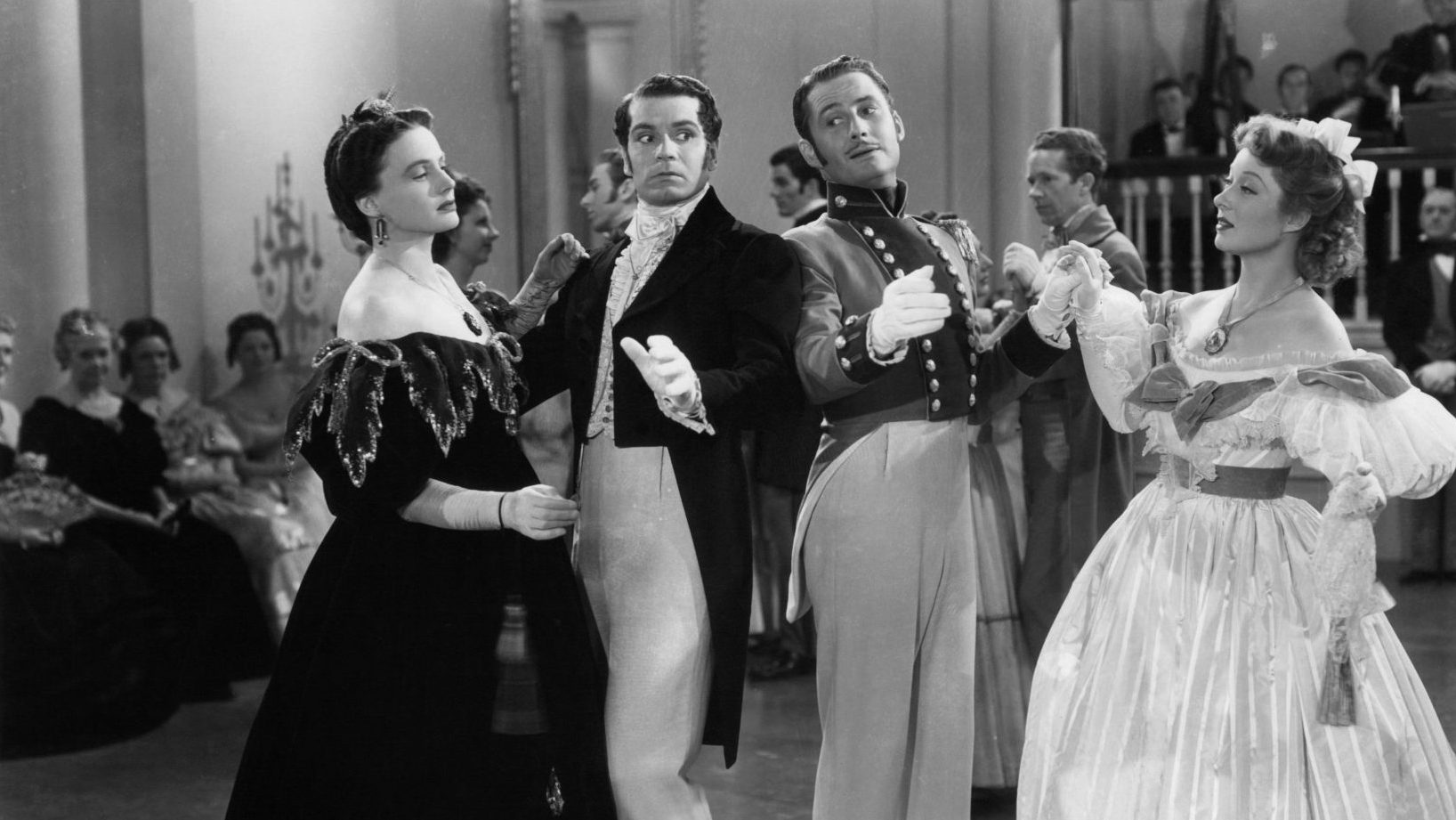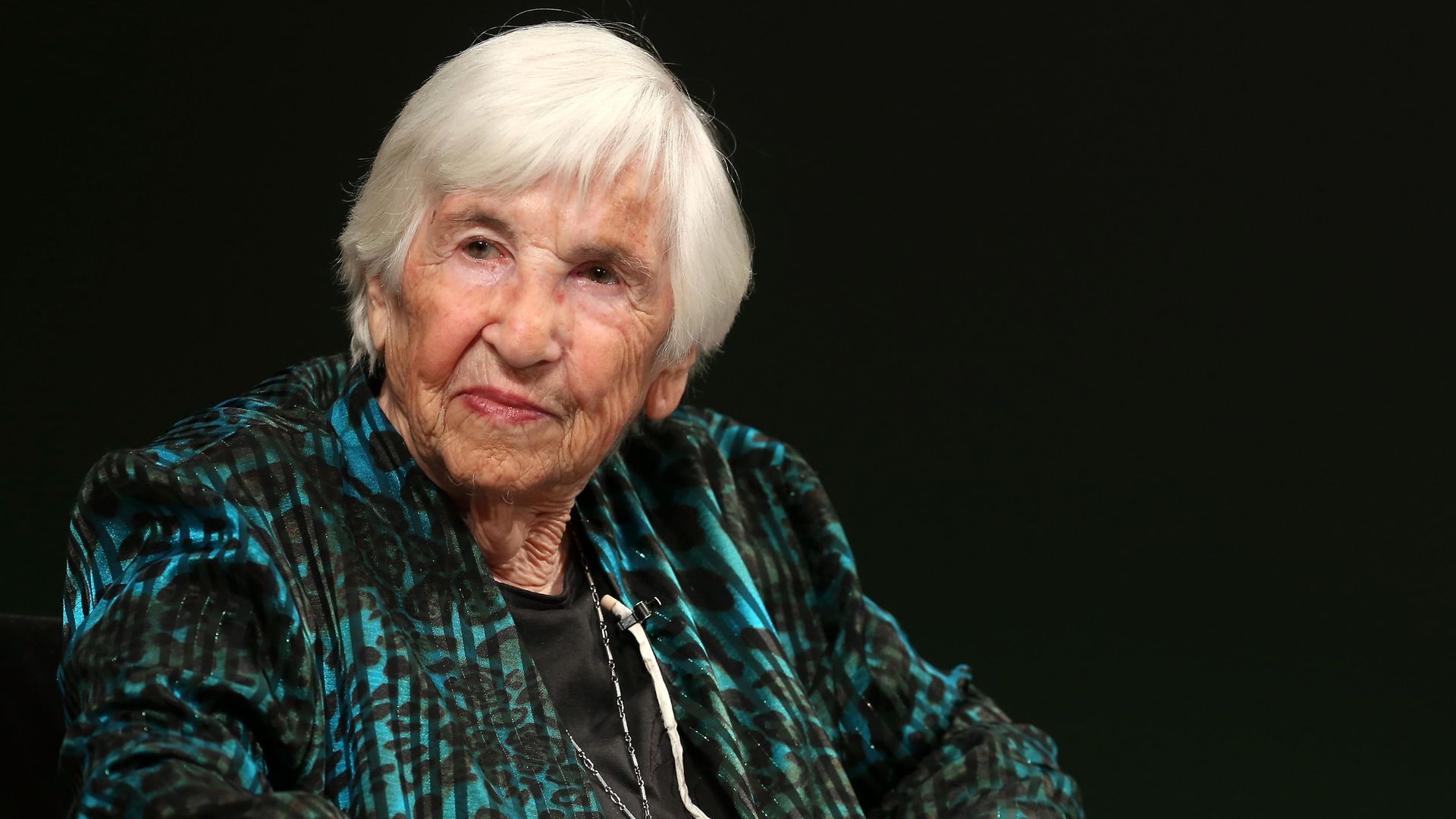
Credit: Metro-Goldwyn-Mayer/Getty Images Images
Every now and then you hear about an idea and can’t believe nobody had thought of it before, something so forehead-slappingly obvious it’s impossible to imagine a time without it. When I encounter anything of that description – solar panels, broadband, Coco Pops – I take it as a sure-fire indicator of genius.
When I heard about Pride and Prejudice: An Experiment in Romance, however, while it seemed to meet all the required criteria I wondered if my genius yardstick would survive it.
Announced last month, PaP:AEiR will be a reality television series devised by the streaming platform Peacock in which “a heroine looking for her duke will sign up for the ultimate social experiment in romance. Transported to a Regency-style England, a group of eligible hopeful suitors will have to win the heart of our heroine, and her court”.
A dating show based on one of the most popular and enduring novels ever written about the subject? I honestly can’t believe no-one has thought of that before, especially in a corner of popular culture where every possible format has been brainstormed to within an inch of its life by executives wearing expensive glasses.
When you consider that Vanilla Ice Goes Amish was not only pitched but actually commissioned and ran for two whole series – sample episode synopsis: “Vanilla Ice and Melvin check out a horse that Jon may want to buy” – a week-by-week Jane Austen-themed elimination contest for singles becomes a chasm in the schedule that’s yawned practically since the days of John Logie Baird.
“Housed on a castle on the countryside, set on a beautiful backdrop of rolling hills, the heroine and suitors will experience that with which dreams are made of,” gushes the press release in a sentence so awful it could well have Austen herself rising from her Winchester Cathedral tomb to have it out with the PR department in person.
“From carriage rides and boat rides on the lake to archery and handwritten letters to communicate, they will be immersed in a time-travelling quest for love,” it continues. Carriage rides on a lake? Communicating by archery? Tell you what, if the puff is anything to go by this show really could turn out to be that with which dreams are made of.
The series is currently inviting applications from potential contestants via an online form that only makes the prospect more enticing. “Is modern dating life failing you?” it probes. “Do you long for a night of romance, chariot rides and balls?” I mean, what self-respecting romantic doesn’t long for a night of balls? And let’s face it, if the Regency period is remembered for anything it’s everyone riding around on chariots.
Those questions are merely rhetorical alas – yet still enough to eliminate me before we’ve started, dash it – but the vigorous questionnaire grilling that follows certainly recreates the experience of being barked at by a fearsome aunt in a Bath drawing room in the presence of a smirking footman.
“What is the longest relationship you have been in? The shortest? Explain. Where are you currently meeting potential partners? Is chivalry important to you? Explain and provide examples.”
Oof, steady on there, Duchess. Then, just when you can almost hear the disapproving tuts and impatient tap of walking cane on tiled floor, you’re brought smartly back to the 21st century with an instruction to “upload a photo with a complete body shot” as well as a 20-second video explaining “why you are ready to find love in an unprecedented way”. Erm, because I hear the young lady plays the piano exquisitely and has a thousand a year?
To be fair, a dating show that will require contestants to put on as many clothes as possible, not least ones with whalebone stays whose lacing requires a foot in the small of the back to achieve the required constriction, will make a pleasant change but I can’t help feeling the attention to literary detail might end up a little… superficial.
I mean, most Austen novels turn on how love wasn’t exactly at the top of the list of ingredients for a successful Regency union. It clocks in well below inheriting a sugar plantation in the West Indies, for example, and probably ranks lower even than dancing a half-decent quadrille and not having syphilis.
Adding to my suspicions that the show will not be clinging rigorously to the named source text is the suggestion that all the archery, charioteering and experiencing that with which dreams are made of will take place in a castle. Not a country house with imaginative topiary and messenger boys panting past the peacocks to rap on the door with invitations to society balls, but a draughty old fortress, arrow slits, typhus and all.
So while Pride and Prejudice: an Experiment in Romance probably does qualify as an idea of genius, I fear the execution may fall short of that exalted standard. From what I’ve seen so far I think I’d rather watch Vanilla Ice looking at a horse.
Literature and reality television should be perfect bedfellows. They both have their villains and heroes, tragedy and comedy, redemptions and spectacular falls from grace. There are unexpected twists, personality clashes and intriguing character arcs. Reality TV and great fiction are both selling us fantasies and really should work well together. It’s baffling that it hasn’t been done before, and done successfully.
There was a 2013 Italian series called Masterpiece in which aspiring authors competed in a series of writing exercises in front of three established novelist judges in order to win a lucrative book deal. It was won by Nikola Savic, a 36-year-old Serb who saw his novel Vita Migliore published to great fanfare with a whopping print run of 100,000. It bombed. As did the show.
Writing, you see, is not a fun thing to watch. You can’t just take an existing format, swap writing for singing and believe you have a show when all you really have is a bunch of earnest people typing.
The voices that matter are not belting out a selection of hits from the shows, they’re walled up inside their creators’ heads. On the primetime ratings front, a call centre worker from the Wirral putting heart and soul into You Raise Me Up is always going to best a bearded man frowning at a laptop.
A great literary reality show needs an inventive format and while I may be proved wrong Pride and Prejudice: An Experiment in Romance, while genius in theory, looks already to be failing in practice.
It’s a hard one to mess up – the Regency novel is particularly well-suited to the genre; like most reality shows they’re set in a world where appearances matter way more than authenticity – but it’s not looking good even at this early stage.
Perhaps if they involve experts in etiquette, ship in some telegenic historians for a bit of light context and, who knows, maybe ditch the chariots, then it could be something entertaining, charming and a celebration of the best of English literature into the bargain.
Otherwise you’ve just got Tinder in fancy dress and quite frankly Jane Austen deserves better.
Having said all that, thinking of potentially successful formats that combine classic works of literature with the cultural zeitgeist turns out to be much harder than it looks.
Expecting to jot down at least a dozen cast-iron ratings winners off the top of my head, I found myself after much tapping of teeth with a biro struggling to think of anything at all. It took a while but eventually, I did hit upon the perfect pitch; a show respectfully Tolstoyan in its execution while incorporating important aspects of popular reality television series.
In Tanner Karenina, bronzed hopefuls spend a winter on the Russian steppe having to earn their tanning lotion via a series of tasks and challenges; dysentery, shinning up trees to escape timberwolves, combing lice out of their beards, that kind of thing. The one who comes back with the deepest tan wins.
It’s simple, original and literary. Even the opening line of the source novel, “Happy families are all alike; every unhappy family is unhappy in its own way”, sums up the appeal of this particular televisual genre.
Tanner Karenina is, not to put too fine a point on it, a stone-cold, copper-bottomed winner. Interested production companies are free to contact me at the usual address. If I’m not there I’ll be out paying calls on eligible society ladies on my chariot.
A EUROPEAN LIBRARY
A weekly selection of fiction and non-fiction, new and old, to build a comprehensive literary portrait of our continent.
THE AUTOBIOGRAPHY OF BENVENUTO CELLINI. Benvenuto Cellini (Everyman, £12.99)
Cellini isn’t the best-known artist of the Italian Renaissance but his memoir, unpublished until the 18th century, is absolutely sensational. His vivid descriptions of everyday life and pen pictures of famous friends and colleagues – he was a drinking crony of Michelangelo – would make this book significant enough, but he cheerily describes murdering two people, tells of adventures in prison and in battle and describes how, while creating his masterpiece Perseus with the Head of Medusa, the fire heating the bronze kept going out so he had to burn all his furniture. Unceasingly entertaining.



